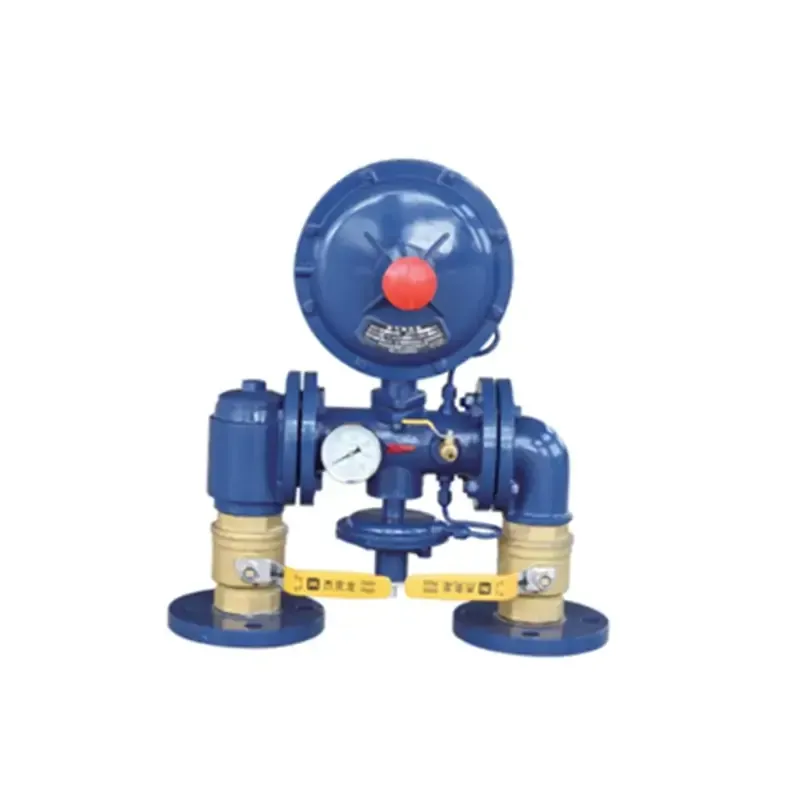
Nov . 06, 2024 22:06
Back to list
natural gas safety valve
The Importance of Natural Gas Safety Valves
Natural gas is a commonly used energy source, powering our homes and businesses, fueling vehicles, and contributing to the production of electricity. Despite its widespread use, it carries inherent risks, particularly related to leaks and potential explosions. Therefore, ensuring safety in systems using natural gas is paramount. One of the critical components in ensuring this safety is the natural gas safety valve.
Natural gas safety valves serve as crucial protective devices designed to maintain the integrity and safety of natural gas systems. These valves are typically installed in pipelines, gas appliances, and industrial machinery. Their primary function is to automatically shut off the flow of gas in the event of an overload or unsafe pressure level, thereby preventing dangerous situations such as gas leaks or explosions.
One of the main types of safety valves is the pressure relief valve (PRV). This valve is engineered to open when the pressure inside a system exceeds a predetermined limit, thus preventing an explosive buildup of pressure. By doing so, PRVs play an essential role in protecting pipelines and gas storage facilities from catastrophic failure. Regular maintenance and inspection of these valves are critical, as wear and tear can compromise their effectiveness.
Another essential type of safety valve is the excess flow valve, which is designed to close when it detects a rapid flow of gas, often indicative of a leak. This mechanism is particularly vital in residential settings, where a gas leak could pose serious risks not only to property but also to human life. By ensuring that the gas flow is cut off rapidly in case of a leak, these valves provide an additional layer of safety.
natural gas safety valve

In addition to pressure relief and excess flow valves, there are also electronic shut-off valves that can be integrated into smart home systems. These valves can automatically close in response to detected gas leaks and can be monitored and controlled remotely. This technology is becoming increasingly popular as safety concerns grow, providing homeowners with peace of mind regarding their gas appliances.
The importance of natural gas safety valves cannot be overstated. They not only protect the physical infrastructure of gas systems but also safeguard human lives and the environment. A single malfunction in a gas system can lead to devastating consequences, ranging from property damage to fatalities. Therefore, investing in high-quality safety valves and ensuring they are regularly inspected and maintained is crucial for anyone using natural gas.
Moreover, education and awareness about gas safety are essential. Users should be aware of the signs of a gas leak, such as a distinctive smell or hissing sounds, and know how to respond appropriately—generally, evacuating the area and contacting professionals is advised. Awareness campaigns can help in spreading knowledge about the importance of safety valves and other safety protocols.
In conclusion, natural gas safety valves are indispensable components that protect lives and property from the inherent risks associated with natural gas usage. They serve as the last line of defense against potential disasters, highlighting the need for proper installation, maintenance, and public awareness. As we continue to rely on natural gas for our energy needs, prioritizing safety through effective valve systems is not just a regulatory requirement but a moral obligation to ensure a safe and reliable energy future.
Latest news
-
Safety Valve Spring-Loaded Design Overpressure ProtectionNewsJul.25,2025
-
Precision Voltage Regulator AC5 Accuracy Grade PerformanceNewsJul.25,2025
-
Natural Gas Pressure Regulating Skid Industrial Pipeline ApplicationsNewsJul.25,2025
-
Natural Gas Filter Stainless Steel Mesh Element DesignNewsJul.25,2025
-
Gas Pressure Regulator Valve Direct-Acting Spring-Loaded DesignNewsJul.25,2025
-
Decompression Equipment Multi-Stage Heat Exchange System DesignNewsJul.25,2025

